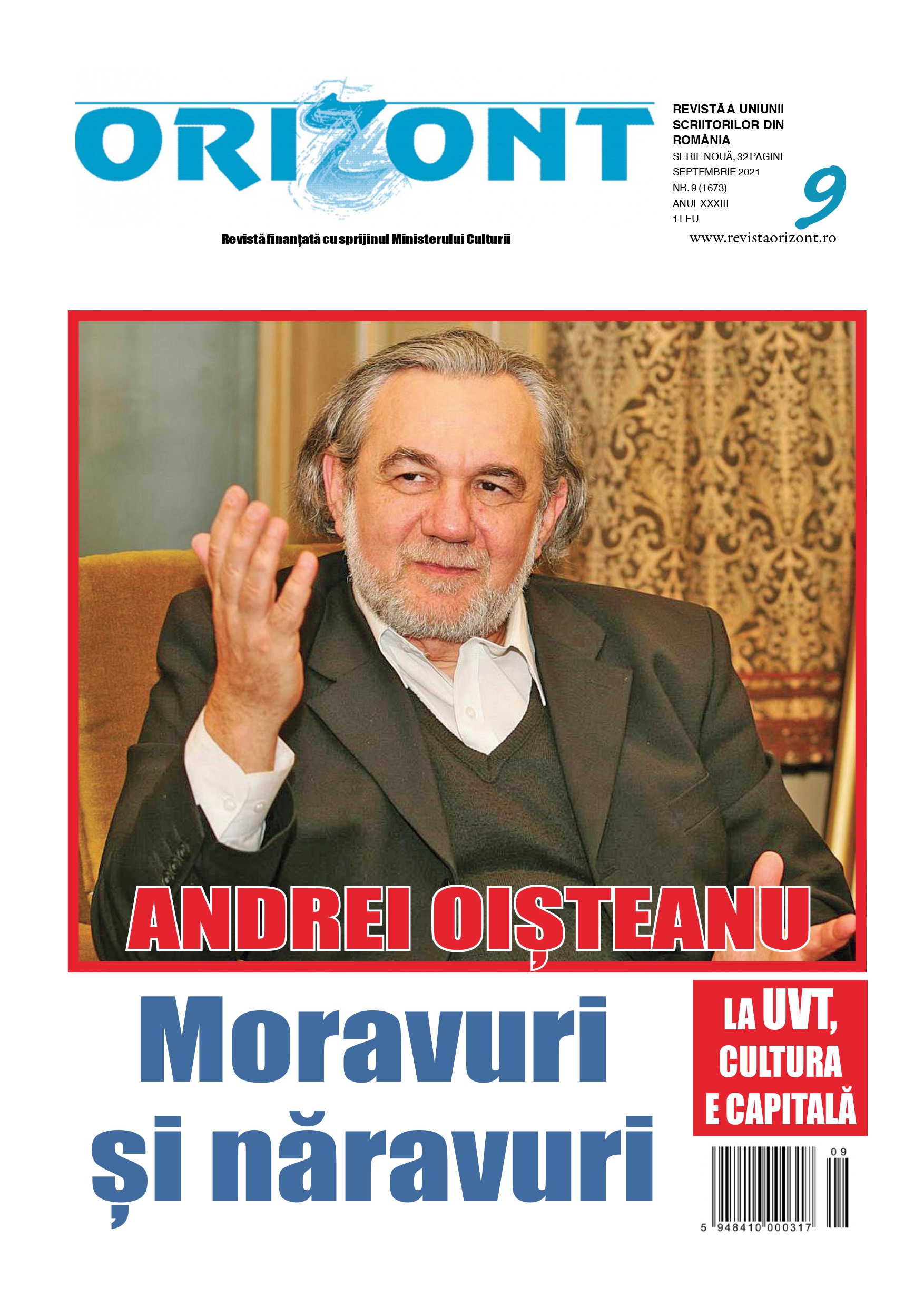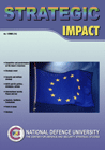
GLOBALISATION AND THE RELATION BETWEEN NATIONAL SECURITY AND INTERNATIONAL SECURITY
The globalisation phenomenon is a future stage of the overall process generating the political, economical and cultural development of humankind.
More...We kindly inform you that, as long as the subject affiliation of our 300.000+ articles is in progress, you might get unsufficient or no results on your third level or second level search. In this case, please broaden your search criteria.

The globalisation phenomenon is a future stage of the overall process generating the political, economical and cultural development of humankind.
More...
MOTTO: “The future of the West depends in large parts on the unity of the West.”
More...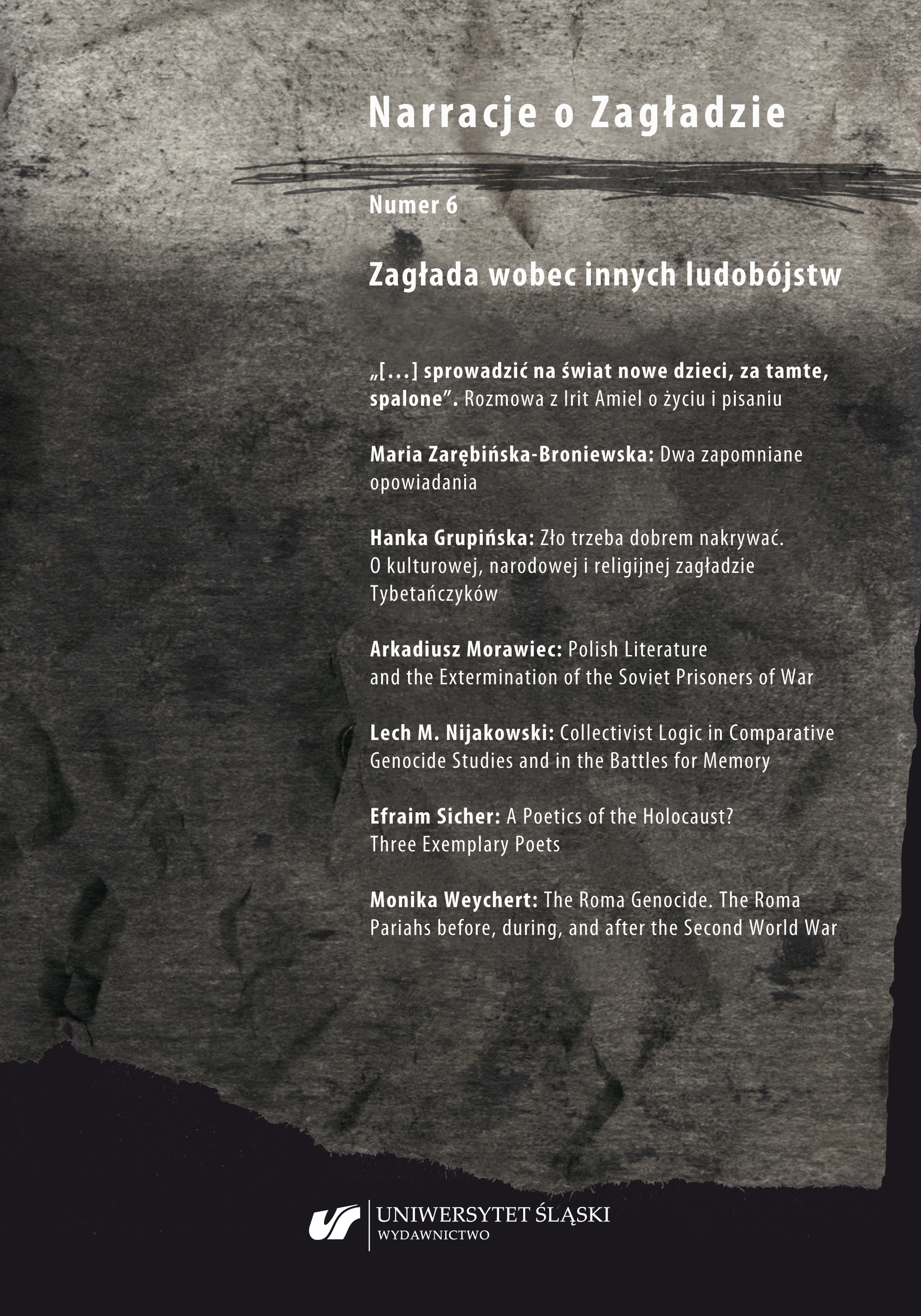
In this essay, I discuss a particular narrative structure manifest in contemporary genocide narratives, a structure based on a distinctive presence of a first-person – usually male – narrator, who describes his experiences and reflections born in the course of his peregrinations to sites of mass extermination. Rooting my research in geocriticism, I explore ties between space and memory, which allows me to distinguish several levels of analyzed texts, tending towards metaphysical generalizations of nihilistic or patriotic nature. I apply the said analytical categories to my study of selected passages of Dawid Szkoła’s and Przemysław Dakowicz’s respective essays.
More...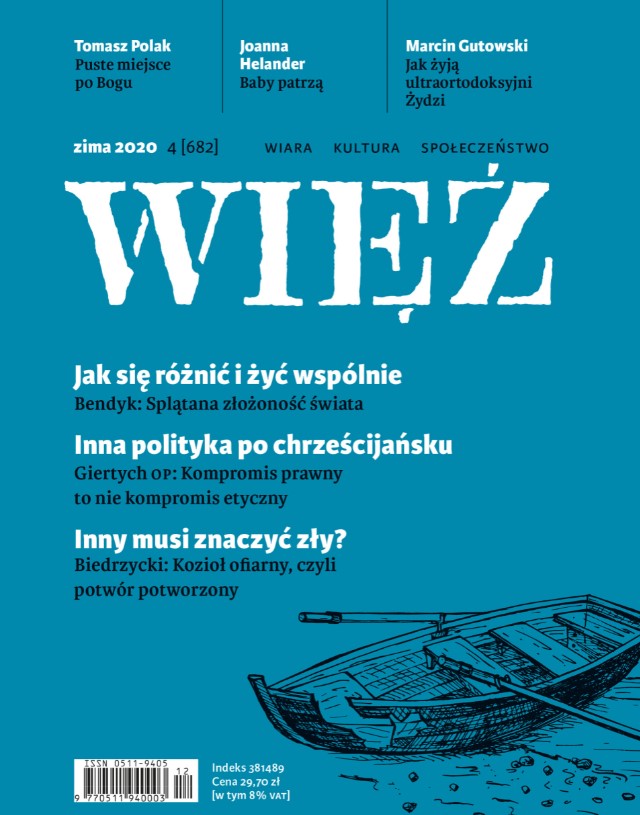
W postchrześcijańskim świecie hołdowaniem iluzji jest założenie, że chrześcijanie podzielają w „kwestiach podstawowych” aksjologiczną semantykę z wszystkimi obdarzonymi rozumem ludźmi dobrej woli. Wielu niewierzących nie chce uznawać najbardziej ogólnych aksjomatów chrześcijańskiej etyki.
More...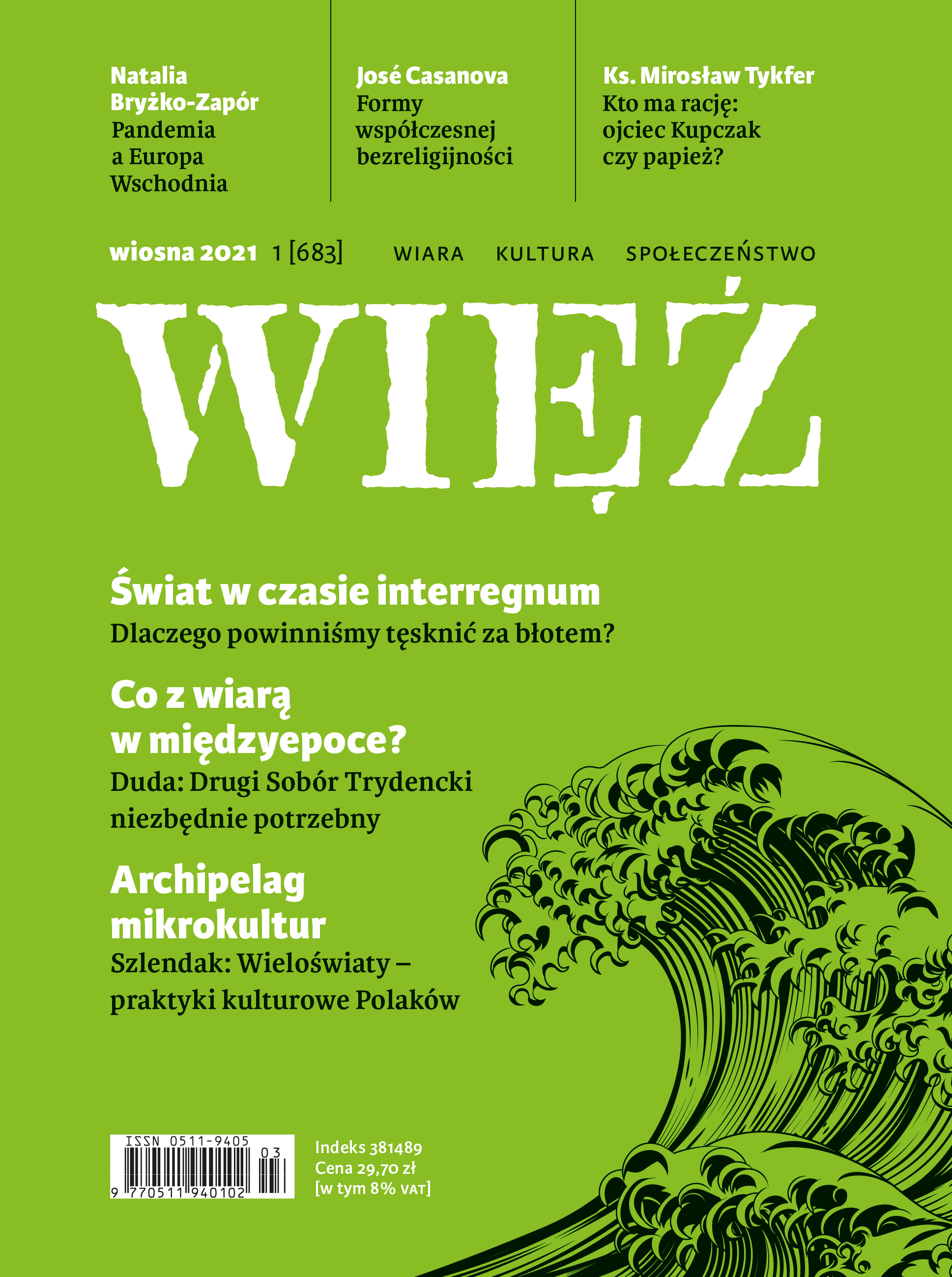
Wielu Syryjczyków, którzy już dawno stracili nadzieję, że ich bliscy powrócą, w napięciu otwiera kolejne strony w przeglądarce. W głowie kłębią się myśli: czy ten mężczyzna, któremu wyłupiono oczy, przypomina mojego syna? A może ta twarz z wybitymi zębami należy do mojego brata? Czy ten wychudzony i zsiniały człowiek to mój ojciec?
More...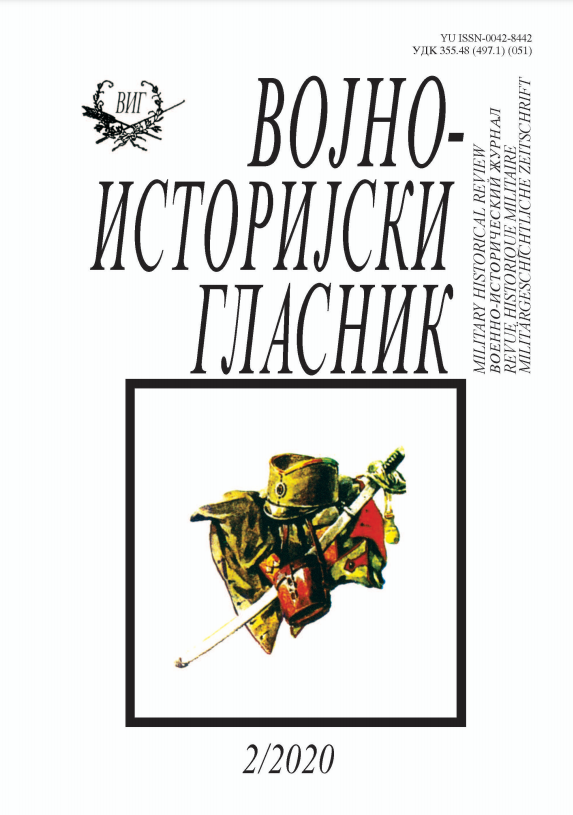
Fabrizio Rudi, Soglie Inquiete, L’ Italia e la Serbia All’ Inizio dell’ novecento (1904–1912), Mimesis, Milano-Udine, 2020, pp. 228
More...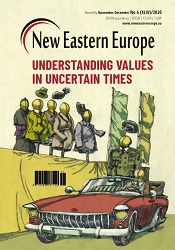
When Volodymyr Zelenskyy won the 2019 presidential election in Ukraine, Ukrainian philosopher Vakhtang Kebuladze called his phenomenon a “non-Maidan”. I repeated this expression in my interview for New Eastern Europe published in May this year. Kebuladze meant that Zelenskyy’s election undermined the 2013 – 2014 confrontation between the pro-European “Maidan” and the pro-Russian “anti-Maidan”, and his political project – Servant of the People – intuitively or consciously sought a different approach: more inclusive, but also more vague, a comprehensive platform attracting voters with different origins and values. At that time, I called the Zelenskyy phenomenon “populism 2.0”. During the election campaign, Zelenskyy was not proposing ideas, values or even slogans.
More...
Liberal-leaning Russians like to remind us that the most common last surname in their country is Smirnov. It is also the name of a well-known vodka brand, Smirnov, etymologically rooted in smirenie, often translated as submission or resignation. Reasons behind the surname’s popularity vary. Some versions claim that peasants, relieved at the birth of a quiet son, would christen him “Smirna.” Others argue that the most pacified subjects of the Russian empire were more likely to procreate, so Smirnovs multiplied faster than Ivanovs or even Petrovs. The Russian linguist Vladimir Nikonov believed that the surname originated among the “subdued” Merya people, who inhabited what is now the Kirov region.
More...
The first 25 years of independent Ukraine is already behind us. In attempts to help understand the changes that have occurred over this time, there are countless political, economic and social analyses, commentaries, recommendations and prognoses. The vast majority of them have referred to this period as one of wasted opportunities. In our research, which we have been carrying out in this regards, we focus on the role the youth has played in the democratic transformation and its future potential. By focusing on the younger generation of Ukrainians we want to show that we are not solely interested in political and economic development, but primarily the country’s human and social capital. We have opted for this approach to better understand how, in the last number of years, young Ukrainians were shaped by experiencing life in a new Ukraine. Have they adopted a stronger sense of national identity, have they become more European? Are they closer to the European Union or Russia? These are the questions we sought to answer.
More...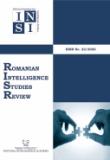
Educația în orice domeniu poate deveni interesantă, eficientă și distractivă prin folosirea avantajelor tehnologiei și ale jocurilor în procesul educativ. Utilizarea jocurilor în procesul educațional a devenit o practicată generalzată încă din secolul XX, deși simularea și jocurile strategice au fost folosite încă din epoca modernă ca parte a educației în domeniul militar.
More...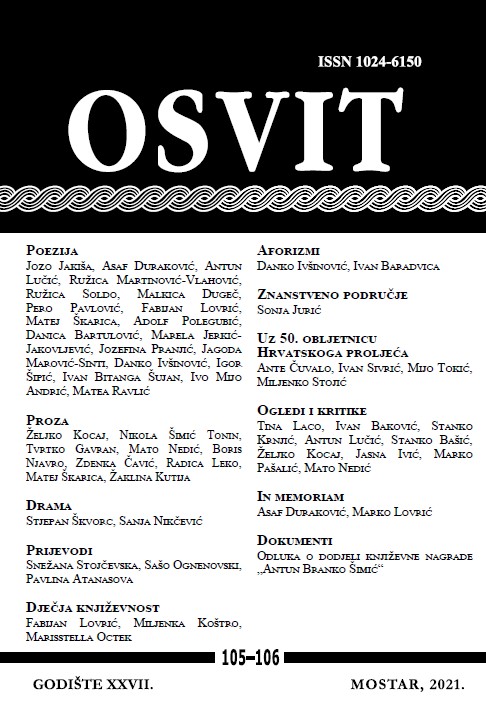
Nacionalizam je jedna od najvećih silnica u modernoj povijesti. Čini se da ni jedan politički, ekonomski, psihološki, ideološki ili bilo koji drugi motiv nema takvu pokretačku snagu i utjecaj na naš svijet. Nadalje, nacionalizam i dalje prkosi znanstvenoj analizi, prognozi, pa čak i samoj logici. Jedan od glavnih razloga tog prkosa jest taj što nacionalizam ima kameleonsku prirodu, niz nepredviđenih situacija i može se izraziti na višestruke načine. Očevidna naznaka složenosti ove teme jest činjenica da dobra studija nacionalizma mora obuhvaćati mnoštvo interdisciplinarnih područja, kao što su povijest, zemljopis, jezik, religija, ekonomija, politologija, međunarodni odnosi, sociologija, književnost, etnografija, umjetnost, da spomenemo samo neke. Stoga ne čudi što među brojnim definicijama nacionalizma ne možemo pronaći jednu koja bi bila zaista dostatna.
More...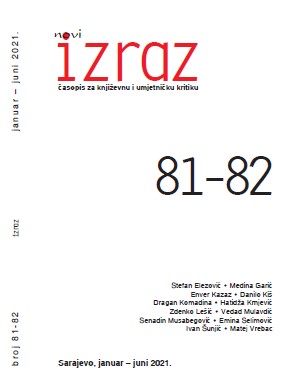
Poslije pada Berlinskog zida, ne samo u Evropi već i u svijetu, probudila se nada da će se uspostaviti međunarodni poredak koji počiva na principu Kantove ideje o “vječnom miru” te da će mit o neprijatelju – koji se gajio, s jedne strane, unutar zemalja zapadnoevropskog bloka (članica NATO‑a) spram “agresivnog komunizma” i, s druge strane, unutar Varšavskog pakta spram “eksploatatorskog kapitalizma” – konačno biti prevaziđen te da će se u samoj Evropi stvoriti zajednica koja počiva na demokratskim osnovama i principima. Iako su u pregovorima o okončanju hladnog rata sudjelovali i predstavnici SSSR‑a, na čelu s Gorbačovom, iz današnje perspektive, sovjetska strana se smatra onom koja je poražena, jer se i SSSR ubrzo raspao. Zemlje Istočnog bloka su zdušno odbacile historiju socijalizma povezujući je, uglavnom, za sovjetsku okupaciju. Okončanje hladnog rata desilo se prilično mirnim putem, bez krvoprolića, ali Jugoslavija, koja je bila alternativa blokovskoj podjeli i koja je gajila politiku nesvrstanih, raspala se u nacionalističkim ratovima, vođenim u ime partikularnih nacionalnih interesa, čiji je cilj bio uništenje svakog oblika multietničkog života!
More...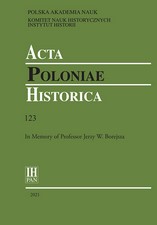
The 20 August 1948 issue of Odrodzenie weekly featured a photographic profile portrait of a man holding a newspaper. It was Paul Eluard, the caption said. The photo can be analysed in two aspects, direct and metaphorical. The direct layer opens the column of photographic portrayals of Members of the French Delegation to the Congress in Wrocław. Below the Eluard portrait, the effigies of Laurent Casanova, Vercors, Louis Aragon, Claude Aveline, Armand Salacrou, Le Corbusier, and Jean-Louis Barrault were placed. The team was made of twenty-seven delegates, and a portrait of Irène Joliot-Curie and her husband Frédéric was published on the front page. The selection and arrangement of the photos might have been incidental, but it may as well have reflected an underlying design. Basically, Eluard positioned above Aragon and Vercors might have been in line with the inviter’s sympathies.
More...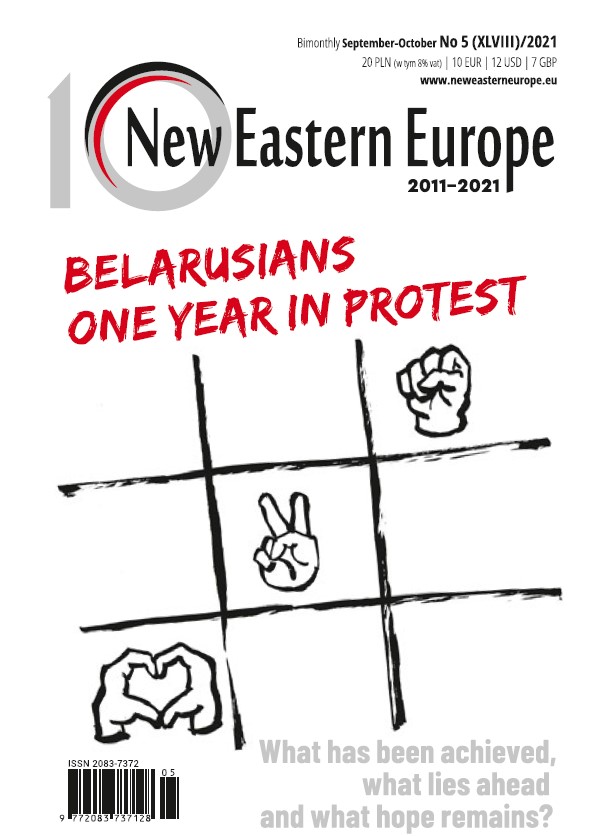
For more than 25 out of its 30 years of independence, Belarus has been a country governed by a sophisticated state-run system of repressions. Yet since last year’s presidential elections, these repressions lost their sophistication and reached a different level in terms of quantity and “quality”. There are at least three perspectives to consider when examining what is happening in Belarus since August 9th 2020.
More...
In June 2021 the European Union announced a new package (the fourth one) of sanctions against the Belarusian regime, including sectoral sanctions aimed at restricting commodity exports of oil products and potash. Many have argued these sanctions will force financial difficulties on the state and thus increase pressures on Alyaksandr Lukashenka to step down, making way for new and free elections. Yet the question remains how effective they really will be if the aim is to ultimately bring down Lukashenka and bring democracy to Belarus?
More...
A year has passed since the presidential elections in Belarus, which initiated an unprecedented social uprising, often referred to as the Belarusian revolution. Like most revolutions, the Belarusian one created its own symbols. Their appearance and dissemination among the protesters had primarily a unifying function. Symbols express the intentions of a revolution. Their interpretation allows us to reconstruct the vision of the future that could emerge on the ruins of the overthrown regime. It raises the following question: one year after the start of protests, how can we describe the symbolism of the Belarusian revolution and can we say it will be an unfulfilled one?
More...
The need for change to the Belarusian constitution was announced long before the events of 2020, and both Alyaksandr Lukashenka and the opposition have initiated a process after the election. The opposition has emphasised the need for changes to the constitution by the political crisis while Lukashenka’s initial interest in constitutional reform was two-fold: to calm the protests and to assure Russia that he can maintain control over the situation. Based on an official proposal recently announced, the changes proposed by Lukashenka’s constitutional commission do not encompass substantive change to the existing non-democratic model, making it even more bureaucratic and slow. Progress to date indicates that the languid process serves as a way to quell the protests, secure Lukashenka’s influence as a potential head of the All-Belarusian Assembly, and assuage Russia – a key Lukashenka ally and backer – to accelerate a promised loan.
More...
On July 28th, 1968, when I was working at the department of international relations of the Central Committee of the Communist Party of Czechoslovakia, I was called and told that we should report to work with a bag packed and enough supplies for a few days. I was not permitted to discuss this with anyone, as it concerned a simultaneous interpretation at an international conference. When we arrived, nothing was explained, except that we would be travelling to Čierna. The participants were brought to the airfield where everything was ready for the government plane to take off.
More...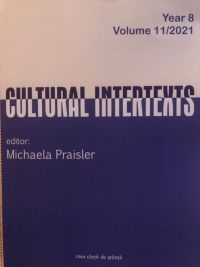
We can definitely say that the SARS-CoV-2 pandemic has changed our lives in such a complex way that it may take us a long time to investigate the ever-branching consequences upon all aspects of our existence. It has come with restrictions, impositions and limitations, established by the authorities and meant to keep the pandemic under control. It was only natural for such forced requirements to be met with protest, as opposing what one deems as infringing upon one’s rights and freedoms is still considered to be a basic human right. Yet, as with everything else in this world, the truth is always in-between, at the intricate crossroads of inter-twining concepts such as human rights, freedom of choice, (mass-)manipulation, conspiracy theories, and individual and mass-psychology. When tackling the numerous and diverse protests that have divided the world over restrictions to be observed or over the vaccination process, Critical Discourse Analysis (CDA) may be regarded as providing a complex view on such matters, revealing the sub-text of what we see and hear nowadays. And let us not forget that, as far as segregation is concerned, one of the oldest tricks in the book reads “Divide et impera!”
More...